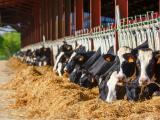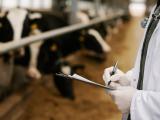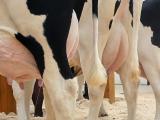A Dutch court has upheld a rule that required virologist Ron Fouchier, PhD, to secure an export permit from the Dutch government last year before he could publish his controversial findings on a lab-modified H5N1 influenza virus with increased transmissibility, according to a ScienceInsider report yesterday.
The ruling means that future similar H5N1 studies in the Netherlands would also need an export permit for publication, according to the story.
Fouchier, of Erasmus Medical Center in Rotterdam, told CIDRAP News today that he would like to appeal the ruling, but he needs to wait for Erasmus's lawyers to consider the options.
The court decision relates to Fouchier's report published in Science in June 2012, showing that as few as five mutations could enable an H5N1 virus to achieve airborne transmissibility in ferrets. Fouchier and his colleagues generated the virus through a combination of genetic engineering and serial infection of ferrets.
Long before publication, Fouchier's study, along with a similar one led by Yoshihiro Kawaoka, PhD, sparked concern about the potential for causing the intentional or unintentional release of a pandemic virus. The US National Science Advisory Board for Biosecurity (NSABB) recommended in December 2011 that the studies not be published unless they were stripped of crucial details.
But the board reversed the recommendation in March 2012, after reviewing the findings in more detail and after the authors provided additional information and clarifications. Kawaoka's study was published in May 2012.
But Fouchier had to obtain an export license before his report could see print. The Dutch government said the permit was required under European Union regulations issued in 2009 that are designed to prevent the spread of nuclear, chemical, and biological weapons, according to ScienceInsider. The rules include dangerous flu viruses and related technical data.
Fouchier applied for an export permit under protest and received it on Apr 27, 2012. When the government turned down a petition against the government's action, Erasmus filed a lawsuit, the story said.
It said Erasmus officials argued that the EU rules don't apply to Fouchier's data because the rules make exceptions for basic scientific research and for information already in the public domain. Fouchier contended that his study qualified as basic research because he sought to understand mammalian transmissibility of H5N1 and that the methods he used to generate mutant H5N1 strains were well-known.
The court, however, ruled that making H5N1 airborne was "a practical goal" and therefore went beyond basic research, ScienceInsider reported. The court also said that, to preserve the regulations, any exceptions to them should be interpreted strictly and that scientists don't have the right to decide whether their own work is basic research.
The story said Fouchier and Erasmus have 6 weeks to decide whether to appeal their case to the Court of Appeal in Amsterdam.
"The initial response as scientists is indeed to appeal," Fouchier told CIDRAP News by e-mail today. "Given that this issue is way beyond scientific argument and sensible reasoning, but entered the arena of legal language and lawyers, I need to wait until our lawyers are back in town next week, before we can make a formal decision."
Fouchier said he does not expect that the ruling will affect his plans for research on the H7N9 avian flu virus, which emerged in China earlier this year, causing 135 human cases and 43 deaths. He is one of a group of scientists who in August detailed plans for various H7N9 studies, some of which could involve generating mutations that make the virus more transmissible ("gain of function" studies).
"H7N9 is not on the list of EU directive 428/2009, so this ruling does not apply," Fouchier said. He sent a long list of pathogens specifically cited in the EU regulation, which includes "highly pathogenic avian influenza virus" but does not mention H7N9.
"This list is clearly a ridicule[ous] sum up of pathogens, without sensible reasoning in light of biological weapon threats," Fouchier commented.
He also said the court ruling could affect research in other EU countries, since the regulation in question is an EU one. "It thus applies to all EU member states. 100s of scientific publications annually on all of the pathogens below would require an export permit from national export authorities," he said.
One US virologist, Andrew Pekosz, PhD, of the Johns Hopkins Center for Global Health, voiced concern about the ruling today. His research focuses on the interaction of flu and other respiratory viruses with the respiratory epithelium.
In response to a query, Pekosz commented by e-mail, "To my knowledge, export licenses have been applied to specific items—certain cells, pathogens, plants, animals—or particular items/products from certain geographical regions. Putting a scientific manuscript into this kind of category seems to be a big departure from what these licenses were meant to do—which is to regulate items that appear very clearly on a list and are tangible things.
"It seems to me to be very odd to apply these export principles to the experiments included in a scientific manuscript."
See also:
Sep 25 ScienceInsider story
Jun 21, 2012, CIDRAP News story on Fouchier's H5N1 findings
Apr 27, 2012, CIDRAP News story on granting of export license for Fouchier's data
Aug 7 CIDRAP News story on plans for H7N9 research





















